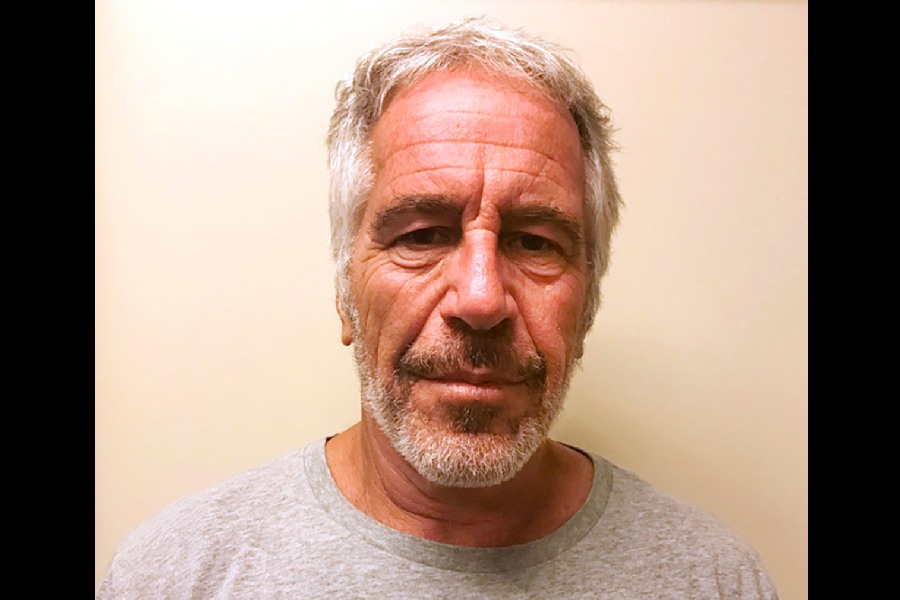 |
July 20: A prominent Washington-based Kashmir group, accused by the FBI of being funded by Pakistan’s ISI in a covert attempt to tilt American policy against India’s control of the state, has hosted several Indian commentators and activists.
Kashmiri separatist leader and US citizen Syed Ghulam Nabi Fai, the head of the Kashmiri American Council (KAC), was arrested in Virginia on Tuesday. Sources suggested the Americans were aware of the roots of the group for some time but chose to act now as a message to Pakistan, which has been making matters difficult for CIA operatives there.
The Washington-based group — also called also called the Kashmiri Centre — lobbies and holds conferences and media events to promote the cause of self-determination for Kashmir. According to an FBI affidavit, the activities of the group are largely financed by Pakistan’s spy agency, the Directorate for Inter-Services Intelligence, or ISI, along with $100,000 (Rs 45 lakh) a year in related donations to political campaigns in the US.
The ISI is suspected to have funnelled as much as $4 million (Rs 18 crore) into the US through the group. Foreign governments are prohibited from making donations to American political candidates.
Jammu and Kashmir police said the 62-year-old Fai’s name figured in several cases in India but did not give details.
The group’s strategy was to offset the Indian lobby by targeting members of the Congressional committees that focus on foreign affairs with private briefings and events, staging activities that would draw media attention and otherwise to elevate the issue of Kashmir in Washington.
However, the FBI said that there was no evidence that any of the lawmakers who received campaign funds from the group were aware of its origins.
Several Indian journalists and activists had also accepted the invitation from the group to take part in seminars in the US, which involved business class travel and “some luxury”. However, there is no evidence yet that they were aware of the KAC’s alleged connection with the ISI. Some journalists had also turned down the invitations.
Sources said journalists such as Kuldip Nayar, Dileep Padgaonkar, Harinder Baweja, Ved Bhasin, Rajmohan Gandhi and activists Rita Manchanda and Gautam Navlakha and politician Subramanian Swamy had attended some of these seminars.
Bharat Bhushan, who writes on India-Pakistan relations and is a former journalist with The Telegraph, declined to deny or confirm if he participated in any event organised by the group.
Siddharth Varadarajan, national bureau chief of The Hindu, said Fai invited him to attend a seminar in 2009. “But I declined,” Varadarajan said, adding that he made enquiries and decided “it was best not to attend”.
“But my decision to not attend isn’t a judgement or commentary on people who did attend as they could have had different assessments (of the KAC and Fai’s activities),” he said.
What aroused Varadarajan’s suspicion was Fai having listed India’s envoy to Washington Meera Shankar as one of the speakers at the event. “I checked with my sources on how come she was attending? They told me she wasn’t,” Varadarajan said.
Veteran journalist Dileep Padgaonkar attended a KAC seminar “several years back”. Padgaonkar said he did not remember the year now but he “quite liked the meeting and did not suspect any hanky-panky”. The journalist said he felt there was a need to put forward the Indian point of view even if the outfit was pro-Pakistan.
“This was a time before Google searches or deep background searches. There were leading journalists from Pakistan attending the seminar. We had no idea about Fai’s connections. I wouldn’t have gone had I known or had there been even the faintest of suspicions (about the source of the KAC funds),” Padgaonkar added.
Padgaonkar said he declined a few months back “a similar invite from a London-based Kashmiri barrister (Abdul Majeed) Tramboo to attend a seminar on Kashmir in Brussels after my sources told me the outfit was dubious”.
But not everybody is apologetic about engaging with the KAC or Fai. Activist Gautam Navlakha felt that Fai could not be vilified as an ISI agent on mere allegations. Navlakha, who attended at least two KAC-organised meetings in the last few years, cautioned about jumping to conclusions even before Fai was convicted. “I know Fai. I have enjoyed his hospitality and my conversations with him. Whatever the nature of funding may be, in my eyes his conviction as a Kashmiri remains impeccable,” Navlakha said.
New Delhi and its mission in Washington kept away from the KAC, knowing it was an India-bashing outfit. But there weren’t any express instructions to Indians from outside the government not to attend KAC-organised events. “Some Indian journalists and activists did put forth very strongly the Indian position on Kashmir in these seminars,” a source said.










